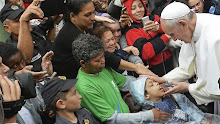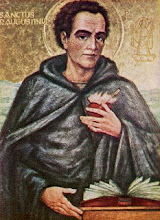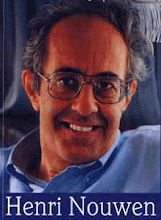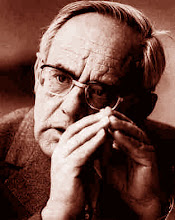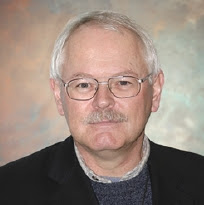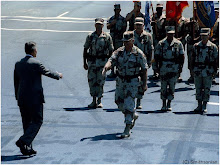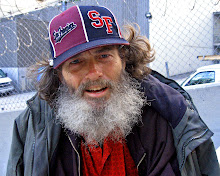
Bing Crosby sang hope-filled songs about home and even grew the nostalgia into a hit film,
White Christmas. But, anthropologists tell us that home is not only place, but it is also about kinship. It is about having both a place in time as well as enjoying a psychological bonding in familial relationships. Unfortunately, since the 1960s - the dawn of the commercial jet age, Americans have progressively lost a personal sense of their family’s homestead, kinship and homeland. The Boeing 747, then later the computer, Internet and digital ages jettisoned us into a world of transience and future shock. Jobs, careers, people, places, houses, apartments, knowledge and things now move through our lives at an alarming rate. Sinking roots into one place is no accident that many find difficult to achieve.
More and more, Americans are suffering from emotional homelessness and in some cases physical as well. Fr. Rolheiser in his book,
Against an Infinite Horizon states, “
When we have no place to identify with, no roots to drink from, no tree trunk to give us clear direction, it is no accident that on any given day we can sincerely wonder who we really are, what our values are … and which of our seeming multiple personalities is our true one. From lack of home we suffer schizophrenia, dislocation, and much loneliness, both psychologically and morally. “
In the 21st century, still many long for the fulfillment of Bing Crosby’s song “I’ll be home for Christmas” because it speaks to their roots. The reality is that most will never be mentally home for the Holidays (because of arguments and discord) – and others still will never be really home because of actual physical homelessness. In either case, mental or physical, the end result is the same – loneliness, depression, anxiety and restlessness.
What is the good news in all this? Is there any? Most definitely, yes! It is our very homeless condition that God uses to call us to Himself. Our roots, our homeland and the rest that we seek in our agitated aloneness are ultimately found when in our desolation we are filled by being in a relationship with the Lord Jesus Christ. Jesus said,
“Come unto me all you who labor and are heavily burdened, and I will give you rest.” Twelve distinct times our Lord Jesus said,
"I Am," with reference to Himself. He said,
“I am the way, I am the truth, I am the life, I am the resurrection, Before Abraham I am, I am the bread of life, I am the light, I am from above …” How much more do we need to hear? Jesus is clearly telling each of us,
"Come to me" (to no one else and nothing else) because,
“I am your home.”Please scroll down and vote in the polls. Your opinion counts!
HIA is on Holidays and returns to publishing on Monday.
 In regards to A Thanksgiving Table Prayer (see, Wedensday, November 21, 2007) it resonated with some and even passed along and shared with others...
In regards to A Thanksgiving Table Prayer (see, Wedensday, November 21, 2007) it resonated with some and even passed along and shared with others... Could it be that the Genesis account of the Garden of Eden and Adam and Eve being driven from it (because of sin) is actually a parable of everyone’s perpetual homelessness? At one time these two characters in the story had a home. It was a nice home at that. However, being home was less about the beautiful Garden than it was about the sense of fulfillment, being at peace with the "family" they were experiencing as they lived in harmony with God as their Creator. The beautiful surroundings they enjoyed were simply sumptuous exterior signs of a lavish and peaceful interior reality they were experiencing every moment of every day. They were living the magical film about being home, “White Christmas” but actually relishing the real version of being home – not the Hollywood version.
Could it be that the Genesis account of the Garden of Eden and Adam and Eve being driven from it (because of sin) is actually a parable of everyone’s perpetual homelessness? At one time these two characters in the story had a home. It was a nice home at that. However, being home was less about the beautiful Garden than it was about the sense of fulfillment, being at peace with the "family" they were experiencing as they lived in harmony with God as their Creator. The beautiful surroundings they enjoyed were simply sumptuous exterior signs of a lavish and peaceful interior reality they were experiencing every moment of every day. They were living the magical film about being home, “White Christmas” but actually relishing the real version of being home – not the Hollywood version.
























 Tsunami Effect (see November 8, 2007) hits home. Anonymous said ... "We've felt these issues first hand in our family. My nephew had 3 tours of duty and came back a broken man. He has been diagnosed with Post Traumatic Stress disorder and had been medicated but his violence has ruined a marriage and prevents him from being a real father. Right now he is living on someone's couch, his soon to be ex wife is equally poor and has had to move into temporary housing. There are so many victims of war!"
Tsunami Effect (see November 8, 2007) hits home. Anonymous said ... "We've felt these issues first hand in our family. My nephew had 3 tours of duty and came back a broken man. He has been diagnosed with Post Traumatic Stress disorder and had been medicated but his violence has ruined a marriage and prevents him from being a real father. Right now he is living on someone's couch, his soon to be ex wife is equally poor and has had to move into temporary housing. There are so many victims of war!"

 Kimberly Hefling and Kathy Matheson, Associated Press Writers report that veterans make up one in four homeless people in the United States, though they are only 11 percent of the general adult population, according to a VA homeless report to be released today. Homelessness is not just a problem among middle-age and elderly veterans. Younger veterans from Iraq and Afghanistan are now found in shelters and soup kitchens seeking services, treatment or help with finding a job. The Veterans Affairs Department has identified 1,500 homeless veterans from the current wars. 2005 data estimated that 194,254 homeless people out of 744,313 on any given night in the U.S. were veterans.
Kimberly Hefling and Kathy Matheson, Associated Press Writers report that veterans make up one in four homeless people in the United States, though they are only 11 percent of the general adult population, according to a VA homeless report to be released today. Homelessness is not just a problem among middle-age and elderly veterans. Younger veterans from Iraq and Afghanistan are now found in shelters and soup kitchens seeking services, treatment or help with finding a job. The Veterans Affairs Department has identified 1,500 homeless veterans from the current wars. 2005 data estimated that 194,254 homeless people out of 744,313 on any given night in the U.S. were veterans. The Blogger stats department tells us a great story of many visitors dropping in here for a daily dose of online community and faith sharing. Some have emailed and said they are having difficulty with posting a thought and using the COMMENT feature at the end of each story. For you more experienced bloggers, your forgiveness please! Here is a short step-by-step guide as to why and how to blog at HIA.
The Blogger stats department tells us a great story of many visitors dropping in here for a daily dose of online community and faith sharing. Some have emailed and said they are having difficulty with posting a thought and using the COMMENT feature at the end of each story. For you more experienced bloggers, your forgiveness please! Here is a short step-by-step guide as to why and how to blog at HIA.


